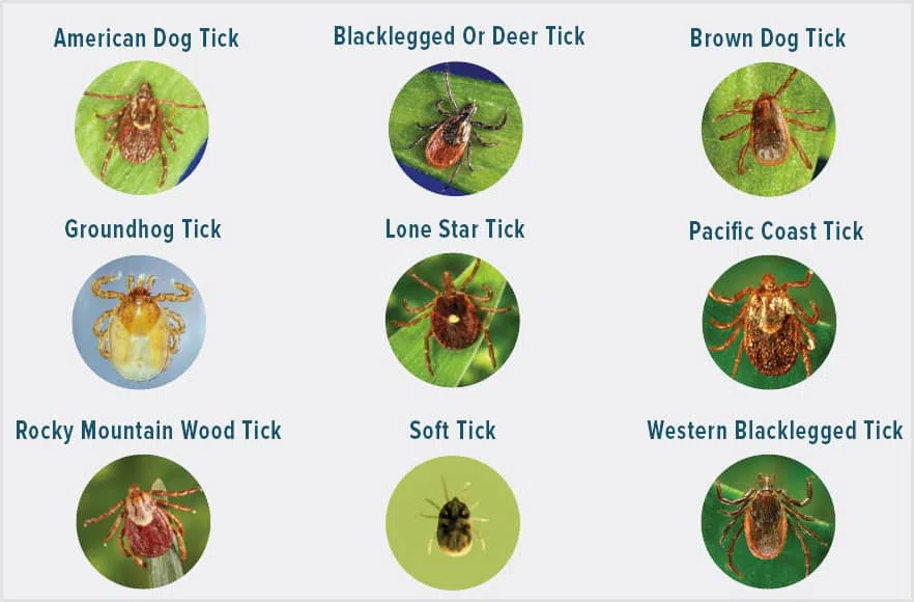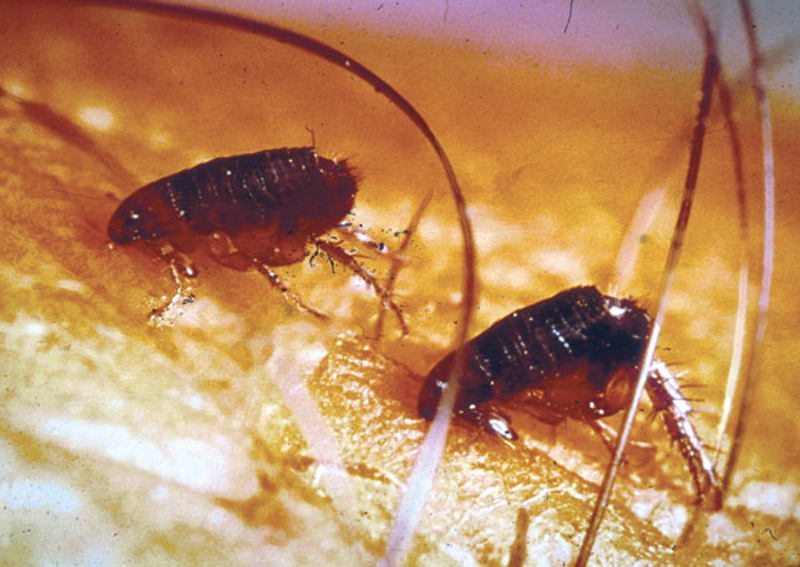Tick Treatments in Florida
Exterminator Services for Deltona, DeLand, DeBary, Orange City, Eustis, and Lake Helen
Tick Control in Deltona, Florida, Pest Control Xperts
Welcome to Pest Control Xperts, your local specialists for tick control and removal in Deltona, DeLand, Orange City, and the surrounding Volusia County area. While ticks are often associated with deep woods, in Central Florida, they are a common backyard threat. Our warm climate and sandy soil allow tick populations to remain active year-round, posing a constant risk to your family and pets.
We understand that finding a tick on yourself or your dog is more than just gross; it is a health concern. Ticks are vectors for serious illnesses like Lyme disease and Rocky Mountain spotted fever. Whether you live near the Lyonia Preserve or have a standard suburban lawn in DeBary, ticks can be dropped into your yard by passing wildlife. Our team focuses on careful pest inspection to find the source, safe pest management practices to eliminate them, and clear communication on how to keep your property safe. We provide dependable scheduling to restore your peace of mind.
If you are pulling ticks off your pets or finding them on your clothing after gardening, do not wait. Reach out to us for assistance today.
Tick Problems We Solve in Deltona
Ticks are parasitic pests that require blood meals to survive and reproduce. In our area, we commonly deal with the Brown Dog Tick, the American Dog Tick, and the Black-legged Tick (Deer Tick). Unlike fleas that jump, ticks “quest”—they climb to the tips of tall grass or shrubs and wait for a host to brush past. This makes overgrown vegetation and border areas of your yard prime danger zones.
A major challenge in Deltona is the interface between residential homes and wildlife habitats. Raccoons, opossums, and deer often traverse residential yards, dropping engorged female ticks that then lay thousands of eggs in your lawn. DIY sprays often fail because they don’t penetrate the dense leaf litter or shrubbery where ticks hide. Effective insect control for ticks requires a targeted approach that addresses both the harborage areas and the breeding cycle. We use advanced pest tracking to identify wildlife paths and apply treatments that stop ticks before they reach your patio.
Common signs of a tick issue:
- Finding ticks attached to your skin after being outdoors
- Pets constantly scratching or biting at their fur
- Seeing ticks crawling on walls or curtains inside the home (common with Brown Dog Ticks)
- Small, dark bumps on your pet’s skin that turn out to be embedded ticks
- Engorged ticks found on the floor or in pet bedding
- Noticing ticks on your shoes or pant legs after walking the dog

Types of Tick Issues We Handle
Backyard and Perimeter Tick Infestations
Most tick encounters happen right in your own backyard. Ticks thrive in the “ecotone”—the transition area where a manicured lawn meets a wooded edge or fence line. They also love shady, humid spots under bushes and low-hanging branches.
What we look for during inspection:
- Tall grass and overgrown weeds along fence lines
- Leaf litter accumulation under trees and shrubs
- Evidence of wildlife trails entering the yard
- Shaded areas where pets frequently rest
How we approach treatment:
We create a defensive perimeter around your home. We apply targeted granular or liquid treatments to the vegetation and shaded areas where ticks quest. We focus on the “tick zone”—usually the bottom 2-3 feet of vegetation—rather than broadcasting chemicals over the open sunny grass where ticks rarely go. We also recommend landscape modifications to reduce humidity and exposure.
Brown Dog Tick Indoor Infestations
The Brown Dog Tick is unique because it can complete its entire life cycle indoors. It does not need soil to develop. This species is often found crawling up walls, hiding behind baseboards, or nesting in cracks near the ceiling. It is a nightmare for pet owners as populations can explode inside the home.
What we look for during inspection:
- Ticks crawling on walls, often high up
- Activity in cracks around door frames and windows
- Ticks hidden in the crevices of kennels or pet beds
- Activity behind curtains or wall hangings
How we approach treatment:
This requires a specialized indoor protocol. We treat cracks, crevices, and voids where these ticks hide. We use products specifically designed to flush them out and kill them on contact, combined with Insect Growth Regulators (IGRs) to stop the eggs and nymphs from maturing. Vacuuming and treating pet bedding are also critical steps we guide you through.
Wildlife-Driven Tick Pressure
If your property is a highway for local wildlife, you will face constant tick pressure. Animals like raccoons and stray cats act as “tick buses,” dropping parasites into your yard every time they pass through.
What we look for during inspection:
- Gaps under fences where animals squeeze through
- Food sources like unsecured trash or pet food left outside
- Burrows or nests under decks and sheds
- Overhanging branches that allow access to the roof or yard
How we approach treatment:
We combine chemical treatment of the yard with exclusion techniques for pests. We advise on how to seal off the areas under decks and sheds to prevent nesting. By making your yard less welcoming to wildlife, we cut off the supply of new ticks. We focus on property pest management that addresses the root cause.

Our Tick Inspection and Treatment Approach
Successful tick control is about habitat modification and precise application. Our technicians begin with a detailed pest assessment service. We walk the exterior property, identifying the high-risk zones: the woodpiles, the overgrown fence lines, and the shady spots under the oaks. We also inspect the interior if you have noticed activity inside, checking baseboards and pet areas.
Once we identify the species and the hotspots, we customize a treatment plan. For outdoor control, we use residual products that remain effective even after rain, binding to the leaf litter where ticks hide. We utilize integrated pest management principles, which means we don’t just spray; we educate. We might recommend trimming back vegetation to let more sunlight in (ticks hate dry heat) or creating a barrier of wood chips to separate the lawn from the woods.
Safety is paramount. We use safe pest management protocols, ensuring that treatments are applied in a way that minimizes risk to non-target organisms like bees and butterflies. Our periodic pest inspections help us stay ahead of the seasons, applying preventative treatments before the spring and fall tick surges occur. This proactive approach provides long term pest control for your property.

Tick Prevention and Pest Proofing Tips for Deltona Homes
You can significantly reduce the tick population in your yard by altering the landscape to make it less hospitable. Ticks need high humidity to survive; drying out their habitat is a powerful natural control.
Preventative steps that actually help:
- Keep grass mowed short; ticks dislike direct sunlight and heat.
- Remove leaf litter, brush, and tall weeds from the edge of the lawn.
- Create a 3-foot wide barrier of wood chips or gravel between lawns and wooded areas to restrict tick migration.
- Stack wood neatly and in a dry area to discourage rodents that carry ticks.
- Keep playground equipment, decks, and patios away from yard edges and trees.
- Remove old furniture, mattresses, or trash from the yard that may give ticks a hiding place.
- Secure trash cans to prevent attracting raccoons and opossums.
- Treat pets with veterinarian-approved tick prevention products year-round.
- Check yourself, your children, and your pets for ticks after spending time outdoors.
- Seal cracks and crevices inside the home if Brown Dog Ticks are a concern.
By implementing these pest deterrent strategies, you create a “tick-safe zone” around your home. Professional service adds the layer of chemical protection needed to handle the ticks that slip through.
Residential and Commercial Tick Control
We provide tick control services for residential homes, focusing on the safety of your children and pets. We know you want to enjoy your backyard without worry. We treat the perimeter and play areas with care, using products that are effective yet responsible.
We also serve commercial clients, including campgrounds, parks, and outdoor event venues in DeLand and Eustis. For these businesses, tick control is a liability issue. We offer commercial pest services that reduce the risk of tick-borne illnesses for your guests and staff. Our local pest control experts can design a treatment schedule that works around your operating hours, ensuring your grounds remain safe and open for business.
Professional Tick Extermination vs DIY Methods
Many homeowners try to treat ticks with hardware store sprays that attach to a garden hose. While these can kill some ticks on contact, they often lack the residual power to last. They also tend to be broadcast over the entire lawn, which is unnecessary and can harm beneficial insects. Ticks are not in the middle of the sunny grass; they are in the dense brush. Professional application targets these specific harborage areas.
Misidentification is another issue. Treating for “fleas” when you actually have seed ticks (larval ticks) often leads to failure because the products and application sites differ. Brown Dog Ticks indoors are notoriously resistant to many over-the-counter foggers and sprays. Using the wrong product can just drive them deeper into the walls.
Professional pest exterminators have access to formulation science—products that are encapsulated to withstand UV light and rain, providing protection for weeks rather than days. We also have the equipment to penetrate dense vegetation effectively. Our comprehensive pest solutions ensure that we are treating the right pest in the right place with the right product.
Frequently Asked Questions About Tick Control
Tick control in Deltona and nearby areas?
Yes, we provide specialized tick extermination services for Deltona, DeLand, DeBary, Orange City, Eustis, and Lake Helen. We understand the specific tick species found in our wooded and suburban environments.
How long does it take to see results?
You should see a significant reduction in tick activity within 24 to 48 hours of treatment. However, because ticks are constantly reintroduced by wildlife, regular maintenance is often needed to keep the population suppressed.
Are your treatments safe for pets?
Yes. We use products that are approved for use in residential yards. We ask that pets remain inside during the application and until the product has completely dried (usually 1-2 hours). Once dry, it is safe for them to return to the yard.
Do you treat the inside of the house for ticks?
We only treat the interior if there is a confirmed infestation of Brown Dog Ticks, as they are the only species that typically infests indoors. For other species, treating the exterior stops them from entering.
Why do I still see ticks after treatment?
Ticks are tough. Sometimes, ticks carried in by wildlife after our treatment may be seen before they succumb to the residual product. Also, if you walk into untreated wooded areas beyond your property line, you can pick them up there.
Can you spray my whole yard?
We can, but we usually recommend targeting the tick habitats (shaded areas, shrubs, perimeter) rather than the open lawn. This is more effective and uses less chemical product, which is better for the environment.
Do you offer green pest control options for ticks?
Yes, we offer botanical-based treatments that act as repellents and contact killers. While these may require more frequent application than synthetic options, they are a great choice for families looking for natural alternatives.
How do I prevent ticks on my dog?
Our service treats the environment, but your pet needs personal protection too. We strongly recommend using a vet-prescribed collar, oral medication, or spot-on treatment in conjunction with our yard service for full protection.
Service Area for Tick Extermination in and Around Deltona, Florida
We are proud to serve the residential and commercial communities across West Volusia and Lake County. From the expansive lots in Lake Helen to the dense neighborhoods of Deltona, we know where ticks hide. We provide consistent, responsive coverage to keep your outdoor spaces enjoyable.
Communities we serve include:
- Deltona
- DeLand
- DeBary
- Orange City
- Eustis
- Lake Helen
- Cassadaga
- Enterprise
Zip codes we serve: 32725, 32738, 32720, 32724, 32713, 32763, 32726, 32744, 32753.
Conclusion
At Pest Control Xperts, we are dedicated to protecting your family from the health risks and annoyance of ticks. From the initial yard inspection to the targeted treatment, our team provides the professional expertise you need to reclaim your backyard. Do not let ticks keep you indoors. Contact us today.
